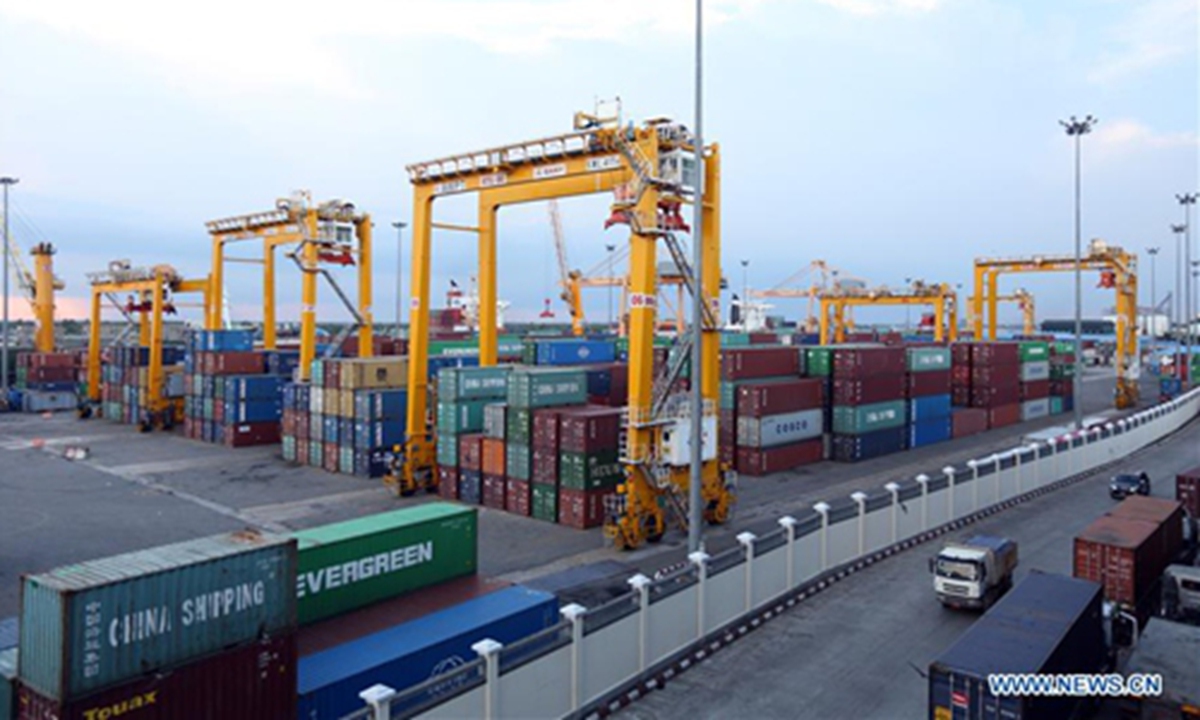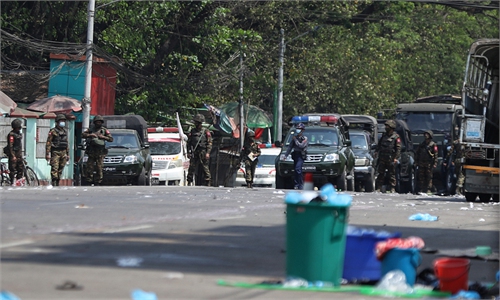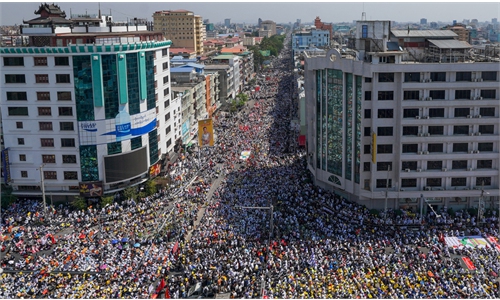
Asia World Port in Yangon, Myanmar. Photo: Xinhua
Some Western media outlets will never give up smearing China by creating conspiracy theories, assaulting Chinese overseas investment projects.The latest example of such behavior is an article in The Guardian, which disparage China for blocking UN condemnation of the political uproar in Myanmar. The author of the article seems to have a different interpretation of China's long-held caution about not interfering in other countries' internal affairs. It claimed that China's decision was for the sake of the Belt and Road Initiative (BRI) investments in Myanmar.
Such biased understanding of one country's respect for another's right to handle its own political affairs cannot be more obvious in indicating the author's distortion of basic international principles. What's even more absurd is that the author claims that "since China views the coup as an 'internal matter,' protesters note sarcastically, sabotage of its assets would be a purely internal matter, too."
If anything, the rhetoric steals concepts. It is hard to imagine that such a blatant endorsement of harming the safety of Chinese citizens and businesses could appear on the website of a mainstream Western media outlet. If the lives and property of Western citizens were in danger in a foreign country, the Western media would have condemned the acts as terrorism.
Ironically, after China urged the local government in Myanmar to take effective measures to stop the violence, a Western reporter asked whether the demand was interference in Myanmar's internal affairs. Since when does a public security issue that requires the police of a country to protect the lives and property of people and businesses within its borders rise to the political level? Isn't it reasonable for China to ask the local government to protect the safety of its people and enterprises during violence?
Western media's bias against a rising China has persisted for many years. And, the above two instances say that some Western media hit new lows in smearing China - no matter it is BRI projects in Myanmar or China's defense of the legitimate rights and interests of Chinese people and businesses in Myanmar.
Western media don't care whether the affected Chinese projects or businesses will influence Myanmar's economic development and its citizens' livelihood. What they care about is what can be used to decry and curse China, in order to create hatred among locals toward Chinese investments.
Myanmar and China are friendly neighbors. Economic and trade cooperation between the two countries have always been based on the principles of mutual respect and win-win partnership. Whether they are BRI infrastructure projects or other industrial investments from China, they have made tangible contributions to Myanmar's economic and social development, benefiting local people.
Protecting the normal operation of Chinese businesses in Myanmar is not only a legitimate thing for China to ask, but also conducive to the employment and livelihoods of the Myanmar people.
The Western practice of always pointing fingers at Chinese projects in Myanmar, underscores nothing but ignorance of the livelihoods and economic development needs of the Myanmar people.
By instigating anti-China sentiment in Myanmar, some Western forces have tried to create obstacles for Chinese projects in the country. And, these forces hope such anti-China sentiment could spread to more Southeast Asian countries, but China's determination to push forward with the BRI projects will not change.
We believe that Myanmar and other Southeast Asian countries will see the benefits of the BRI programs for their local economies, and sooner or later their people will get to know the gimmicks of the Western media and the true motives behind their lies.


